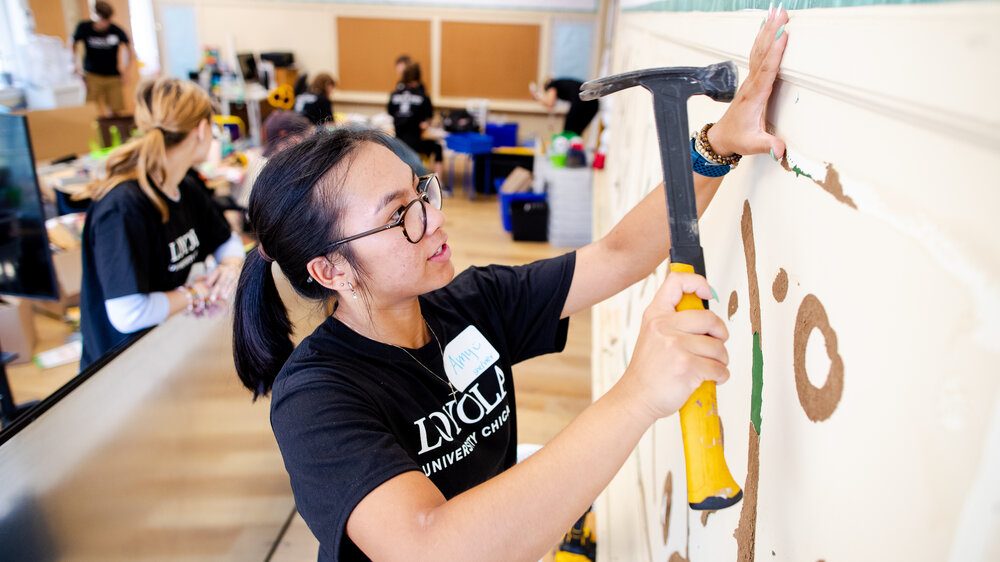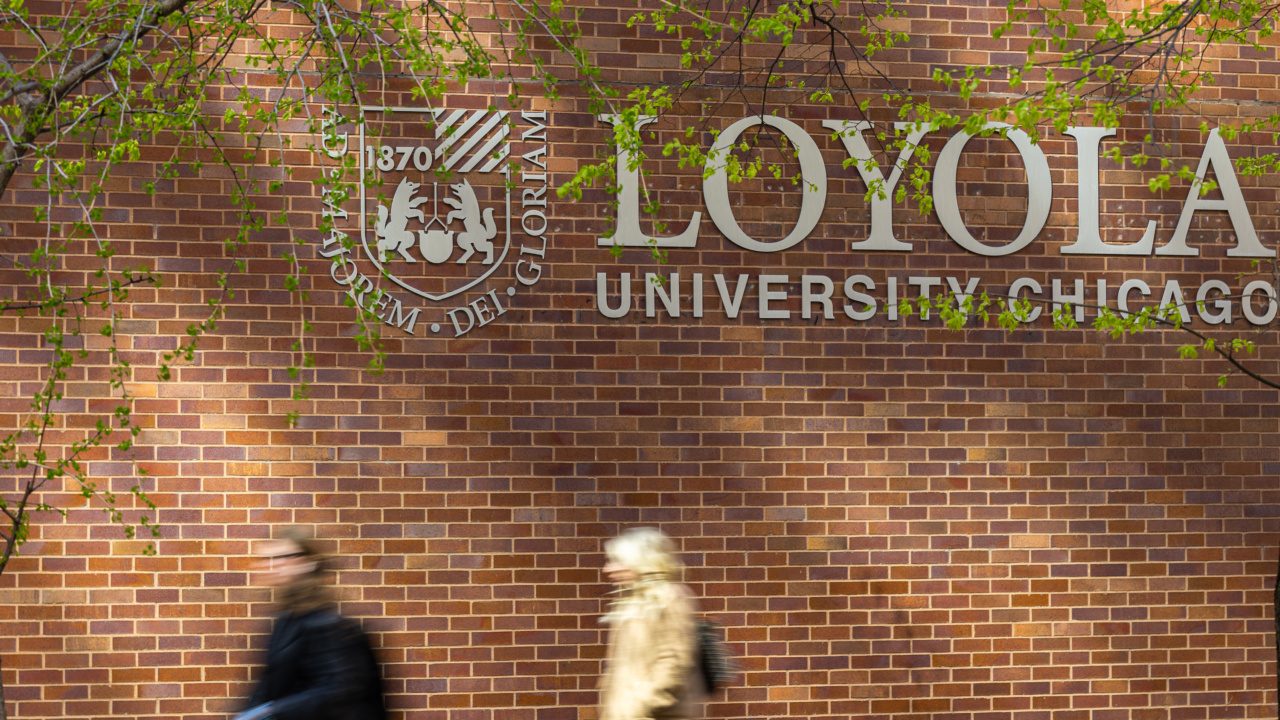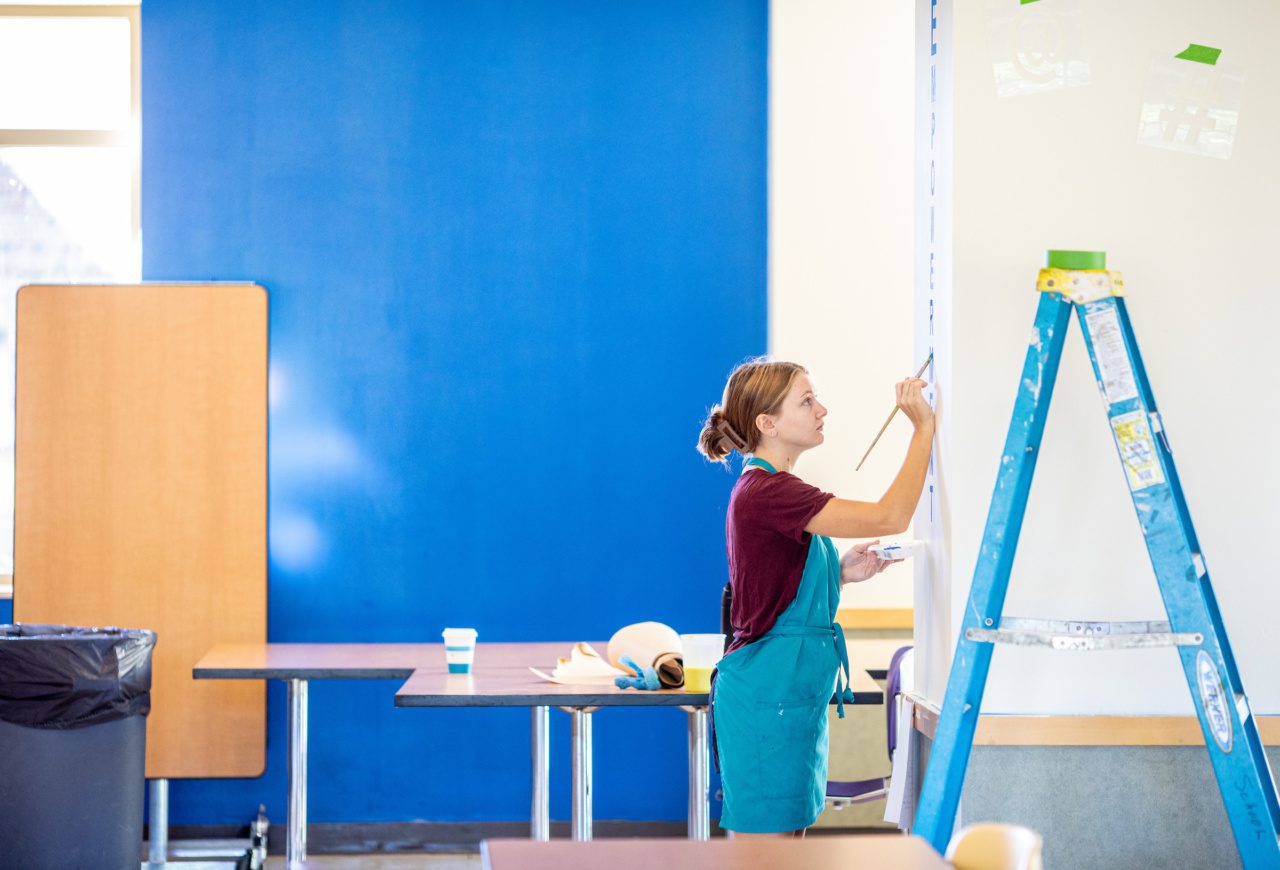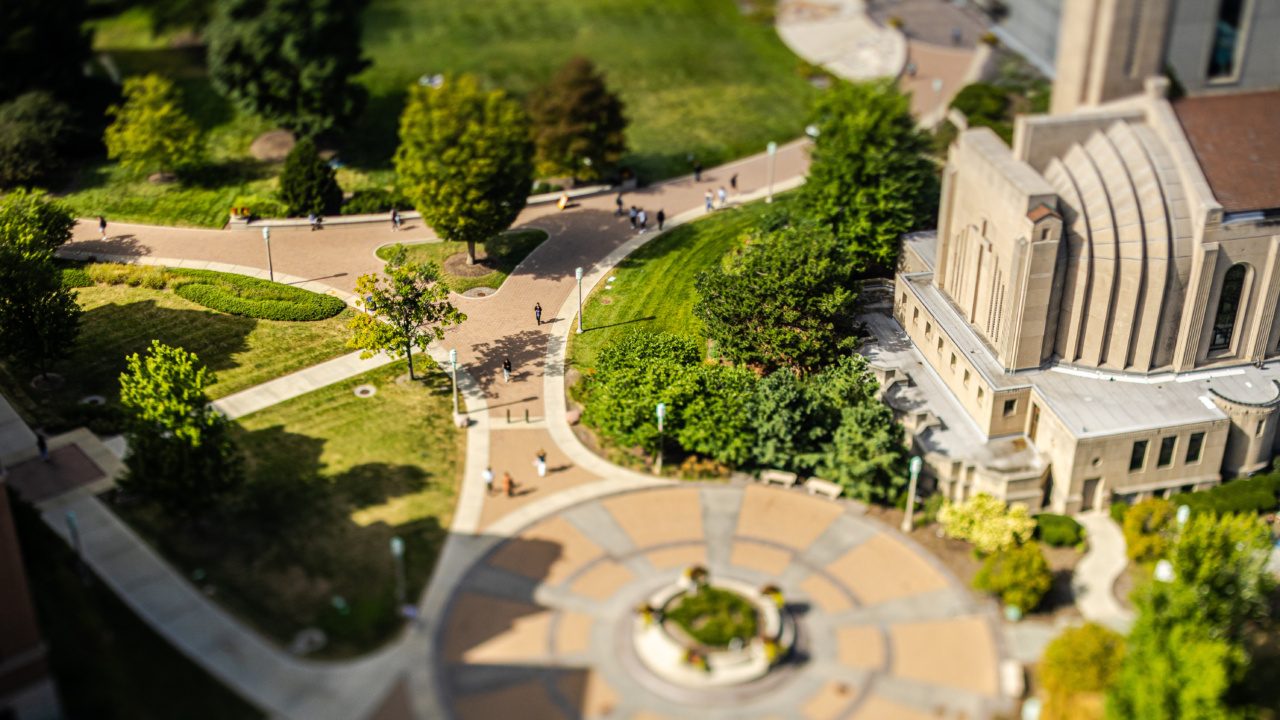CHICAGO – January 10, 2024
Loyola University Chicago has once again been recognized by The American Council on Education (ACE) and the Carnegie Foundation for the Advancement of Teaching as one of only 40 U.S. colleges and universities to receive the Carnegie Community Engagement Classification in 2024.
This important classification recognizes institutional commitment to community engagement and is awarded following a process of self-study by each institution, then assessed by a national review committee. A task force of over 50 Loyola faculty and staff members met over a year to conduct the institutional assessment, collect University-wide data, and craft the application for re-classification.
“We recognize these institutions for their exceptional commitment to community engagement, and their work to transform knowledge into meaningful action,” said Timothy Knowles, president of the Carnegie Foundation. “They exemplify the true spirit of the Carnegie endorsement and the power of serving the public good.”
Enacted by Congress in 1906, the Carnegie Foundation has a rich history of driving transformational change in the education sector. Notable contributions include the creation of the Education Testing Service (including the GRE) and the Carnegie Classifications for Higher Education–which has been the leading framework for institutional assessment and recognition of community engagement in U.S. higher education for the past 19 years. The 40 institutions being classified or re-classified in the 2024 cycle are among the 368 total colleges and universities actively holding this distinguished designation.
“Loyola University Chicago has proudly held a Carnegie Classification since 2008,” said Margaret Faut Callahan, provost and chief academic officer. “Service and community engagement are at the very core of our Jesuit, Catholic mission and identity and we are honored to be nationally recognized with this distinction.”
Loyola students, faculty, and staff are actively engaged in high-impact learning programs, including academic internships, service learning, and research, throughout the City of Chicago and in neighboring suburban communities like Maywood, the longtime home of Loyola’s Health Sciences Campus. In the 2022-2023 academic year, 2,354 students provided more than 89,000 hours of work to nonprofit organizations–and 725 community partners hosted Loyola students in service, internship, and research.
Loyola provides dedicated opportunities for students, faculty, and community partners through the Center for Engaged Learning, Teaching, and Scholarship (CELTS), the Center for Urban Research and Learning (CURL), the Office of Neighborhood Initiatives, Community Service and Action, and many units throughout the University. Through meaningful partnerships, deliberate action, and strategic investments, Loyola works alongside its neighbors to pursue a more equitable, connected, and healthy society by contributing to economic development, local capacity building, and neighborhood vitality.
——
About Loyola University Chicago
Founded in 1870, Loyola University Chicago is one of the nation’s largest Jesuit, Catholic universities, with nearly 16,600 students. The University has four campuses: three in the greater Chicago area and one in Rome, Italy, as well as course locations in Vernon Hills, Illinois (Cuneo Mansion and Gardens), and a Retreat and Ecology Campus in Woodstock, Illinois. The University features 15 schools, colleges, and institutes. Ranked a leading national university by U.S. News & World Report, Loyola is also among a select group of universities recognized for community service and engagement by prestigious national organizations including AmeriCorps and the Carnegie Foundation. To learn more about Loyola, visit LUC.edu or follow us on Twitter via @LoyolaChicago.
About the Carnegie Classifications
The Carnegie Classifications are the nation’s leading framework for categorizing and describing colleges and universities in the United States. Utilized frequently by policymakers, funders, and researchers, the Classifications are a critical benchmarking tool for postsecondary institutions. ACE and the Carnegie Foundation announced a partnership in February 2022 to reimagine the Classifications to better reflect the diversity of post-secondary institutions and more completely characterize the impact that today’s institutions have in society.
About ACE
ACE is a membership organization that mobilizes the higher education community to shape effective public policy and foster innovative, high-quality practice. As the major coordinating body for the nation’s colleges and universities, our strength lies in our diverse membership of more than 1,600 colleges and universities, related associations, and other organizations in America and abroad. ACE is the only major higher education association to represent all types of U.S. accredited, degree-granting colleges and universities. For more information, please visit www.acenet.edu or follow ACE on X (formerly known as Twitter) @ACEducation.




